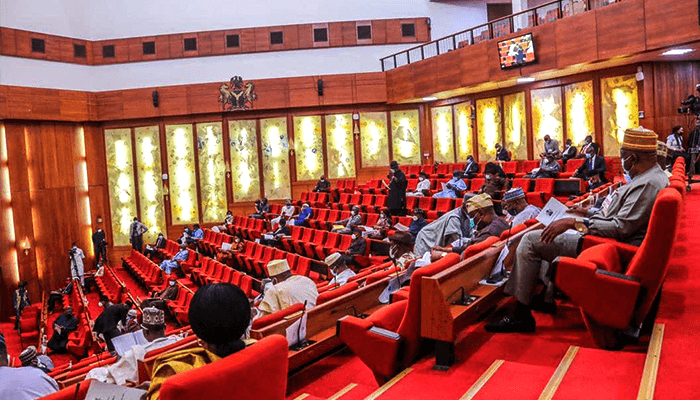…passes bill for mandatory citizen registration
The Senate has directed its Committee on Communications to investigate the recent surge in data costs by telecommunications providers and propose measures to ensure a more sustainable and consumer-friendly digital economy.
This resolution followed deliberations on a motion put forward by Asuquo Ekpenyong (Senator, Cross River South), who highlighted the economic burden placed on Nigerians, especially young people by the significant increase in internet costs.
The motion noted that the over 200% surge in data prices had “placed significant financial strain on millions of Nigerians, especially young people who rely on the internet for their livelihood.”
It further stated, “The Senate notes that young Nigerians have embraced the digital economy, leveraging the internet for various income-generating activities, including freelancing and remote work, digital marketing and social media management, e-commerce and online trading, software development, web design and mobile app creation, content creation on YouTube, TikTok, and Instagram, online education and professional skill development, cryptocurrency trading and financial technology innovations, and customer support services, among others.”
Read also: Bill to abolish death penalty scales second reading at House of Reps
The motion also raised concerns that fiber-optic internet remains unaffordable for most Nigerians, leaving them dependent on mobile data, which has become prohibitively expensive.
“Also concerned that the reasons provided by Telecom providers for the data price hike, including high operational costs and unfavorable exchange rates are untenable and it appears that instead of addressing the root causes of the high cost of doing business in Nigeria, the burden is being unfairly transferred to end users.
“Aware that the high cost of doing business in Nigeria is driven by multiple challenges, including poor infrastructure, unreliable power supply and road networks, high import duties on ICT equipment and other essential business tools, multiple taxation and excessive regulatory charges on telecom operators, security concerns that increase operational risks and insurance costs, bureaucratic bottlenecks that slow down business operations and innovation, and the high cost of diesel and alternative energy sources due to an unreliable national grid power supply.
“Believes that urgent government intervention is required to ensure that affordable internet access remains available to all Nigerians, particularly the youth, who are the backbone of Nigeria’s digital economy.”
Additionally, the Senate expressed skepticism over telecom operators’ justification for the price hike, which they attributed to operational costs and foreign exchange fluctuations.
The lawmakers argued that providers were unfairly passing the financial burden onto consumers rather than addressing systemic business challenges.
They acknowledged that Nigeria’s high business costs stem from multiple factors, including “poor infrastructure, unreliable power supply, high import duties on ICT equipment, multiple taxation, excessive regulatory charges, security concerns, and bureaucratic bottlenecks.”
The lawmakers unanimously adopted the motion, emphasising the need for immediate Government intervention to ensure internet affordability, particularly for young Nigerians who drive the country’s digital economy.
In a related development, the Senate also passed a bill seeking to overhaul Nigeria’s identity management system by making citizen registration compulsory.
The proposed law, which aims to repeal and replace the existing National Identity Management Commission (NIMC) Act, was approved following a report submission by the Committee on National Identity Card and Population, chaired by Senator Victor Umeh (Anambra Central).
Umeh explained that the legislation was designed to establish a unified and cost-effective identity system aligned with global best practices.
The bill seeks to enhance data accuracy, promote inclusion, and address gaps in Nigeria’s identity management framework.
